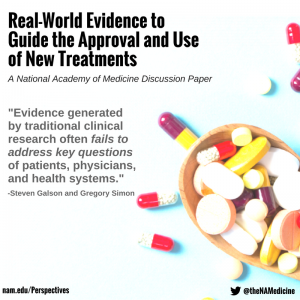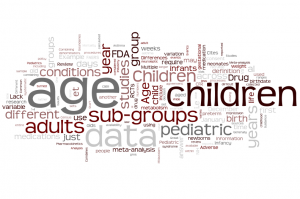The increased attention given to Real-World Evidence is a welcome development
The National Academies of Science held a workshop last October, “Real-World Evidence Generation and Evaluation of Therapeutics—A Workshop”, bringing together key thinkers to examine opportunities and challenges for incorporating real-world evidence into evaluation of medical products. Regulatory experts and FDA scientists followed-up with a cogent discussion of RWE and its use in the regulatory setting published in the New England Journal of Medicine, “Real-World Evidence — What Is It and What Can It Tell Us?” They reported that “the FDA is developing guidance on the use of ‘real-world evidence’ — health care information from atypical sources, including electronic health records, billing databases, and product and disease registries — to assess the safety and effectiveness of drugs and devices.”

NAS workshop reviews RWE
Kids stand to benefit
Real-world evidence is of special importance to children because we can’t always conduct randomized clinical trials in pediatric populations. Real-world evidence, from large databases, electronic health records, and similar sources, may be the only evidence we have about medications or devices used by children. All the more reason to make sure that real-world evidence meets the unique needs we have when studying children: adequate sample sizes for all age sub-groups, critical data such as birth date, birth weight, and gestational age, ability to link to parental (and even sibling) data, and linkage with school performance metrics.
As efforts increase to address the challenge of developing high-quality RWE, we must consider and address the special considerations and challenges in using RWE to answer questions about the effects of medications in children. Asking these questions now will ensure that advances in the use of RWE will benefit children as well as other sectors of the population.
See Tamar Lasky’s editorial in the journal Drugs – Real World Outcomes, “In the Real-World, Kids Use Medications and Devices”.
